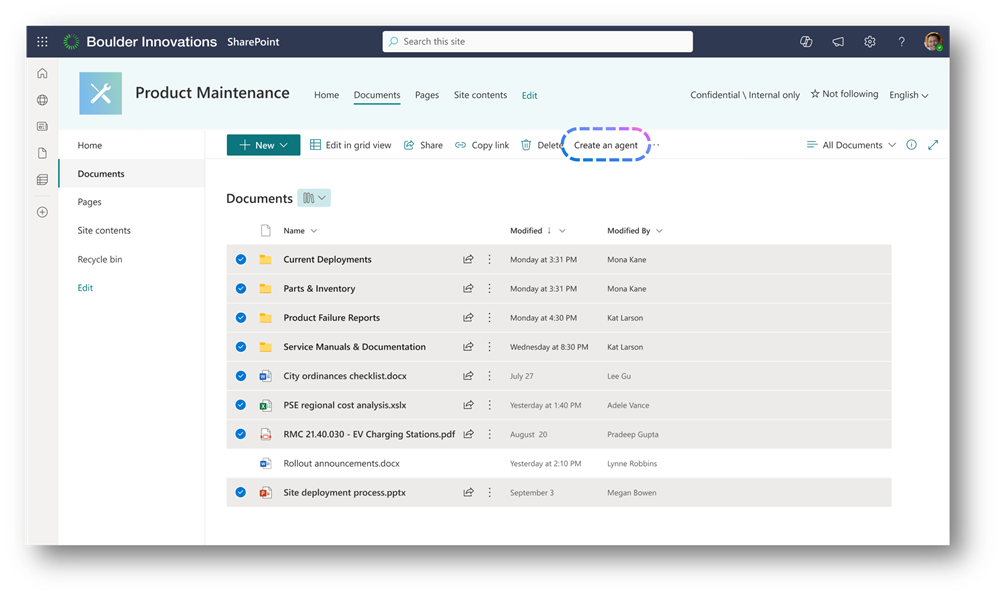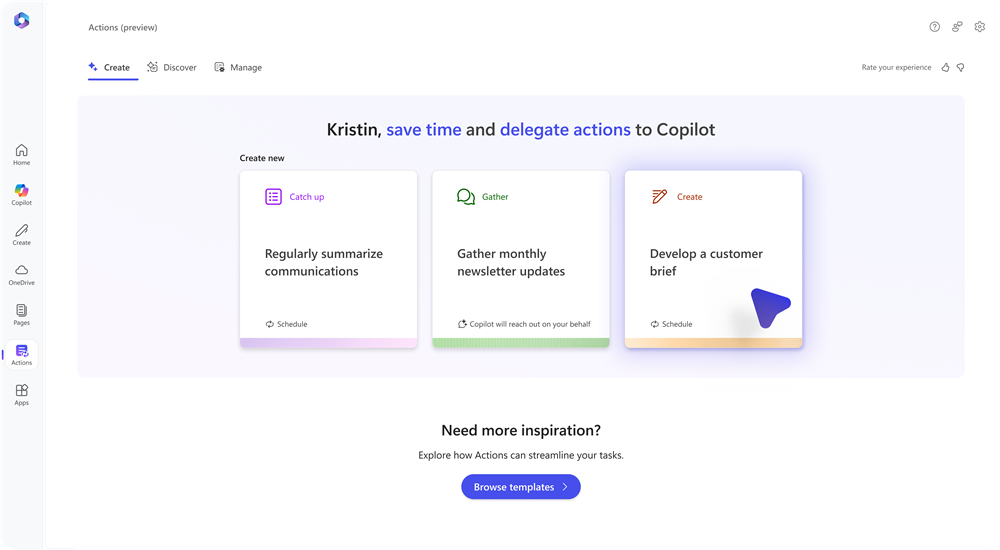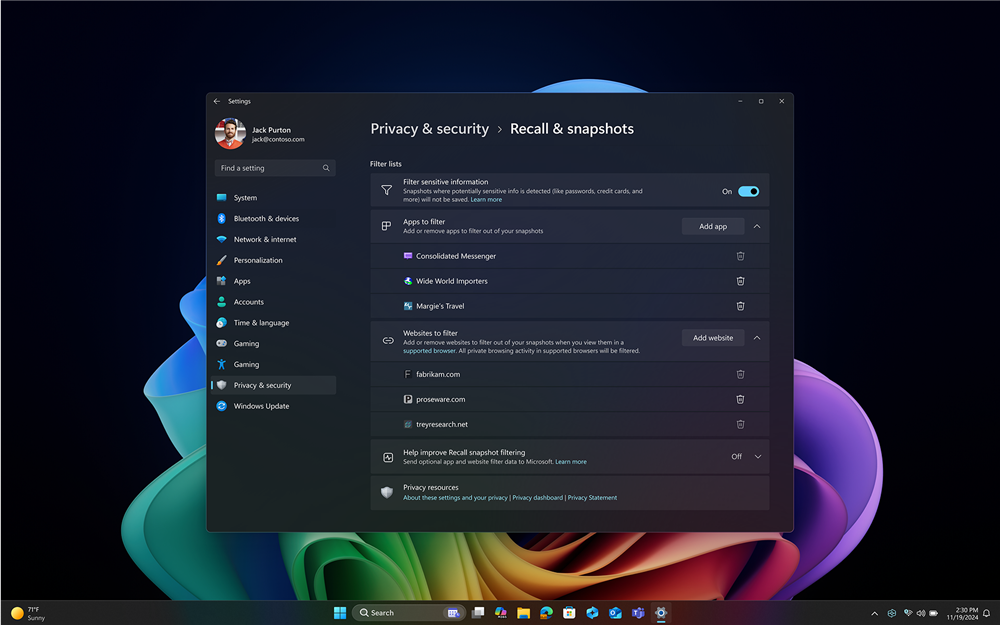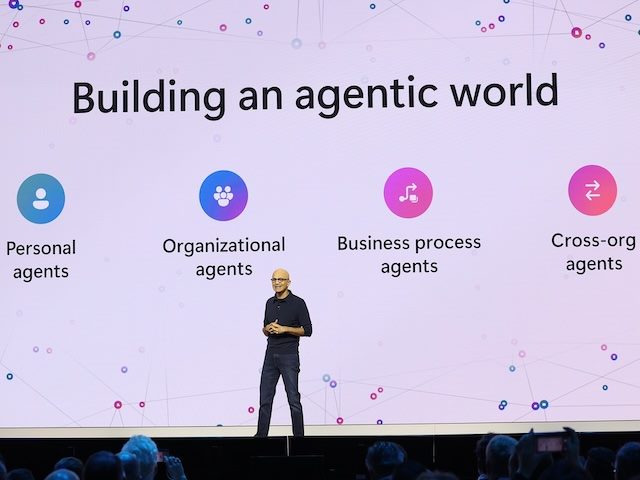Sometimes the lines between Microsoft Build and Microsoft Ignite blur. Both conferences focus on the development of Microsoft technologies and platforms, and both feed into each other. However, they are — at least in principle — quite different. Build is for developers who turn ideas into real tools while Ignite brings those tools to enterprises and digital workplaces.
Microsoft Ignite this year was no different. On display were many technologies we've been hearing about since Build, only now brought to life with demonstrations of what they can do for organizations.
800 Sessions, 14,000 In-Person Attendees, Too Many Announcements to Cover Them All
Ignite took place this week in Chicago, with over 14,000 people attending in person and another 200,000 people registered to attend online. Microsoft and its partners presented more than 800 sessions, demos and expert-led labs over the course of four days.
Ignite covered a range of topics, reflecting the company's diverse interests within and beyond the enterprise. Key themes included:
- Strengthening Security: Addressing the growing sophistication of cybersecurity threats with enhanced security measures.
- Advancing Cloud Technology: Highlighting significant updates in Azure and its role in modern business operations.
- Empowering Developers: Showcasing AI-driven tools and solutions designed to support developers and fuel innovation.
- Quantum Computing Progress: Announcing a partnership with Atom Computing to advance commercial quantum machines.
The big focus for the digital workplace this year — as it is every year — was enhancing productivity and collaboration via updates to Microsoft 365 and Teams in the form of new AI-powered features. Highlights of the conference depends on your organizational needs or interests, but below were a few of the stand out announcements.
Related Article: Will Your Next Hire Be an AI Agent?
AI Agents Enter the Workplace
Microsoft had unveiled Magentic-One, a multi-agent AI system designed to automate complex tasks in the weeks preceding Ignite. Microsoft researchers introduced the open-source project on Nov. 11 as part of the company's efforts to advance agentic AI capabilities.
Given the Ignite announcements, Magentic-One will be a considerable addition to the workplace. In the interim, companies will have access to new, ready-to-use agents in Microsoft 365 Copilot designed to handle simple tasks and complex business processes. These agents don't need much setup, making it easier for companies without AI experts to use smart, knowledge-based tools.
Microsoft narrowed the agents' focus into five main areas, which will likely dispel much of the confusion around their use and application. They are designed to help with common business tasks, including customer service, sales and data management. Some of the notable Agents include:
- SharePoint Agents: Users can customizeSharePoint agents to aid in information retrieval and recommendations. In a blog about the SharePoint agents, Microsoft's Adam Harmetz wrote that these agents can help manage and unlock the knowledge found in the billions of files and millions of SharePoint sites created daily, helping employees make better decisions and more efficiently execute tasks. SharePoint agents are now in general release.

- Facilitator Agent: This agent acts as a meeting assistant in Teams, taking real-time notes, summarizing discussions, highlighting key points and identifying action items. Facilitator agent is in preview.
- Interpreter Agent: Provides live translation for nine languages during Teams meetings, supporting seamless multilingual collaboration. Participants have the option of allowing the agent simulate their voice. Interpreter agent is expected to go into preview in early 2025.
- Project Manager Agent: Automates reminders, task assignments, status reporting and progress tracking. Project manager agent is in preview.
- Employee Self-Service Agent: Automates responses to common HR and IT queries, such as payroll, leave, equipment requests, and basic troubleshooting, freeing up staff for more complex tasks. Employee self-service agent is now in private preview.
It is also worth noting here that agents can be shared through email or Teams chats, ensuring teams have access to the same accurate information. By @ mentioning the agent in a group chat, the team gets access to the same agent to assist and support collaboration.
Related Article: AI Makes the Leap From Individual Productivity to Cross-Team Collaboration
Copilot Updates
As expected, Ignite also featured a number of Copilot announcements. Microsoft Copilot got an upgrade to deliver faster responses and provide additional functionality. Here are a few of the stand-out additions:
1. Copilot Actions
New Copilot Actions make it easy to automate daily tasks with simple, fill-in-the-blank prompts. Users can set them up once and forget about them. For example, they can be set up to deliver a daily summary of key tasks, collect input from teams for a weekly newsletter or automatically prepare for customer meetings by summarizing past interactions. These features are currently in private preview.

2. Copilot in Teams
Copilot in Teams can now understand and summarize content shared onscreen, like PowerPoint slides or web pages, in addition to the chat and transcript. Users can also ask Copilot to quickly summarize a file shared in a chat, giving you the key points without opening it. This feature will be available in public preview in early 2025.
3. Copilot Pages
The next phase of Microsoft 365 Copilot will integrate web, work and Pages into a new design system for knowledge work. Microsoft first introduced Copilot Pages, a dynamic, collaborative space designed for AI-driven teamwork in October 2023.
The company announced further enhancements to Copilot Pages to allow creation of more content types such as interactive flowcharts or code, using data from Microsoft Graph. It will be available to everyone in early 2025. Other additions include multi-page support, increased relevancy of Copilot results as Pages develop and availability of Pages on mobile.
According to Microsoft, user feedback indicates that Copilot in Microsoft Teams has significantly transformed meetings, so the company plans to roll out similar enhancements in Excel for data analysis, PowerPoint for storytelling, Outlook for email management, among other applications.
Microsoft Teams Integrations
Apart from the additional use cases of Copilot in Teams, two other additions stood out:
1. Storyline
The company is bringing Storyline over from Viva Engage into Microsoft Teams so leaders and employees can share updates and connect with colleagues, improving visibility and engagement. The Storyline integration will allow employees at all levels to follow leadership updates, find content, share their ideas and communicate — all within Teams. While some speculate if the integration spells the ultimate demise of Viva Engage (formerly Yammer), time will tell. Of note, the blog post discussing the updates did share: "Integration of communities with Teams and much more is coming next year."
Storyline will be available in Teams in preview early next year.
Related Article: Yammer's Integration Into Viva Engage Is a Story of Evolution, Not Extinction
2. Loop Workspace
Channels in Microsoft Teams help streamline collaboration by bringing people, content and apps together around projects or topics. Soon, a Loop workspace tab will be available in standard channels, allowing teams to brainstorm, co-create and organize content in real-time.
Microsoft Loop is a collaborative workspace launched in Microsoft 365 in 2021 to help teams seamlessly create, share and update content across different Microsoft apps in real-time, such as Teams, Outlook and Word.
Bringing Loop Workspace into Teams means that everyone in the team will have access, even as team members change. The workspace will also follow the governance, lifecycle and compliance standards set by the Microsoft 365 Group supporting the team. This will be available in early 2025.
Copilot+ PC Updates of Note
With over 800 sessions, it is impossible to catch all of the announcements of workplace interest at Ignite. However, three more announcements also caught our attention.
1. Finding Information Faster
Microsoft is also improving how users search for files and information on their PCs with Copilot+ and powerful NPUs. The new Windows Search feature uses semantic search to understand what users are looking for, even if it doesn’t match the exact file name.
This will help employees find things faster, whether they are searching local or cloud files. The feature will first be available to Windows Insider users early next year and will expand to more customers at a later date.
2. Simplifying Workflow
With Microsoft 365 Copilot on Windows 11, employees using Copilot+ PCs will have a personal assistant to help with tasks like idea generation, collaboration and task completion, making it easier to switch between tasks and navigate applications.
3. Microsoft Still Pursuing Recall
Finally, we couldn’t leave Ignite without a brief note about the controversial Recall feature. According to Microsoft, it will introduce yet more new restrictions on its use. In blog updating Recall's status updating Recall's status, Pavan Davuluri, corporate vice president for Windows and devices wrote: "We heard your feedback on needing a secure and controllable experience for using Recall in your organizations, and it will be… [On release] Recall will be disabled by default, and IT will enable this feature through new policies before it can be made available to employees for opting in.”

Recall was initially scheduled for release in June, then pushed off until October following backlash and is now expected in preview in December. When the feature rolls out, it will now be turned off by default. IT departments can enable it using new policies, adding extra encryption and protection through Windows Hello to enhance data security.
Related Article: Microsoft Recall Woes Are Emblematic of Broader Generative AI Security Concerns
